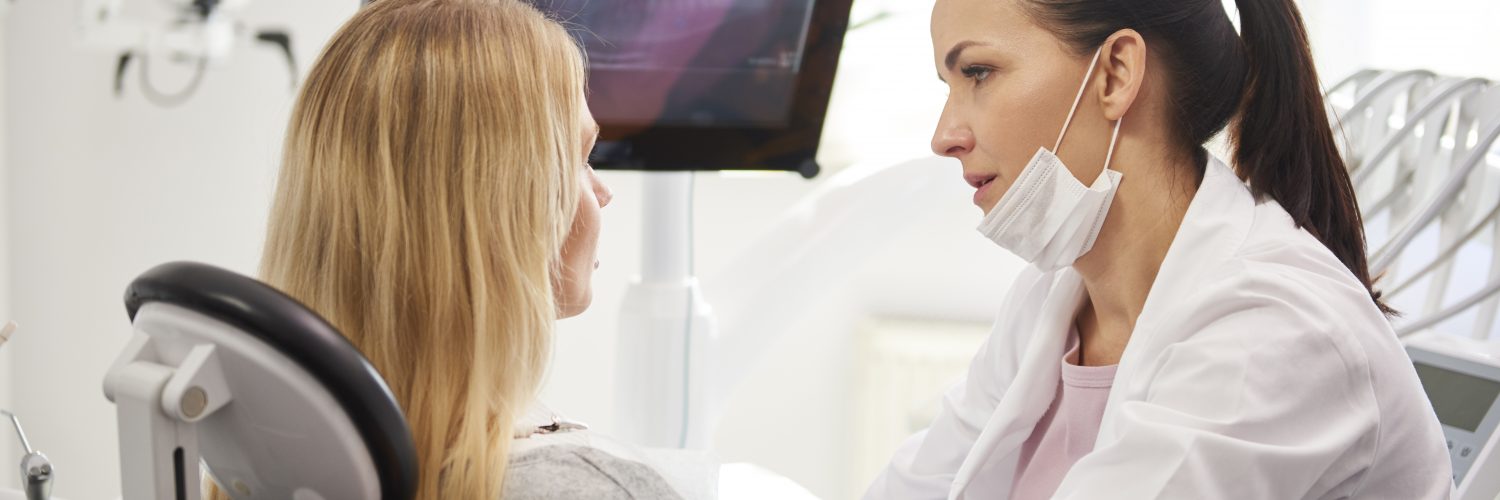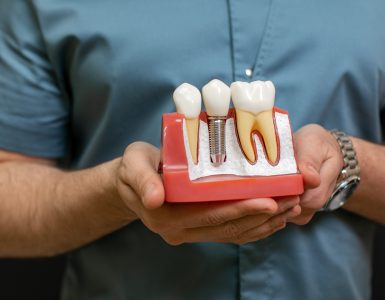It is quite common to feel a little nervous and anxious about visiting the dentist. The reasons for this will vary from person to person. Your oral health is important and avoiding a trip to the dentist will only make any dental health problems you may have much worse and potentially more complex to rectify. Thankfully, there are ways available to help you manage any fears you are having.
Let your dentist know
It is important that you have a discussion with your dentist about your fears, so that a treatment plan can be put together to help you manage them. You dentist is familiar with dental anxiety and will be more than happy to put procedures in place to make things easier for you. Exposure therapy may be useful. Don’t be afraid to ask questions and get your dentist to explain the procedure to you. You can arrange a hand signal to let your dentist know that you are feeling uncomfortable and need to take a break. Bringing a support person in with you may also help.
Distraction
Sometimes it can be the noises around you that trigger your anxiety. Your dentist will be able to provide you with music or a TV to help, or you can bring your own headphones and music that will help to take you mind off what is going on.
Relaxation and mindfulness techniques
For many people relaxation and meditation techniques can be useful. Focus on your breathing as you inhale and exhale slowly. Then focus on relaxing the tension in your muscles slowly one body part at a time starting from your head and working your way down to your toes. Visualisation techniques may also help. Start practising these regularly starting a couple of weeks before your appointment.
There are therapies that may help
For those people who suffer from severe dental phobia, hypnosis may help. Therapies such as cognitive behavioural therapy have also been beneficial for some, so a referral to a psychologist may be recommended. Another effective solution is using exposure therapy, which involves seeing your dentist on a more gradual basis. You can start making visits to your dentist without actually having an examination and then building up your visits to have an x-ray or teeth cleaning or partial examination until you are comfortable with participating in a full appointment. Regular visits will also help you to get to know your dentist and build trust so you will feel safe.
Sedation
There are several options for sedation that can help you relax during dental treatment. You should discuss these with your dentist to ensure you are fully informed or any possible side effects.
- Nitrous oxide or happy gas. A mask is fitted to your face and you breathe in a mixture of oxygen and nitrous oxide. You will still be awake and will feel a relaxed and pleasant sensation.
- Oral sedatives. Prescribed by your dentist or doctor, this short-acting, single dose tablet should be taken one hour before your appointment.
- Intravenous (IV) sedation. Provided by a dental seditionist, medication is provided through a drip is placed into a vein in your arm or hand. This is known as conscious sedation. You will feel relaxed and possibly drift off into a light sleep, but will still be able to respond to verbal prompts.
Most importantly, don’t forget to have that chat with your dentist. He will be able to advise you in more detail about the various alternatives and provide you with referrals to other therapies if necessary.




